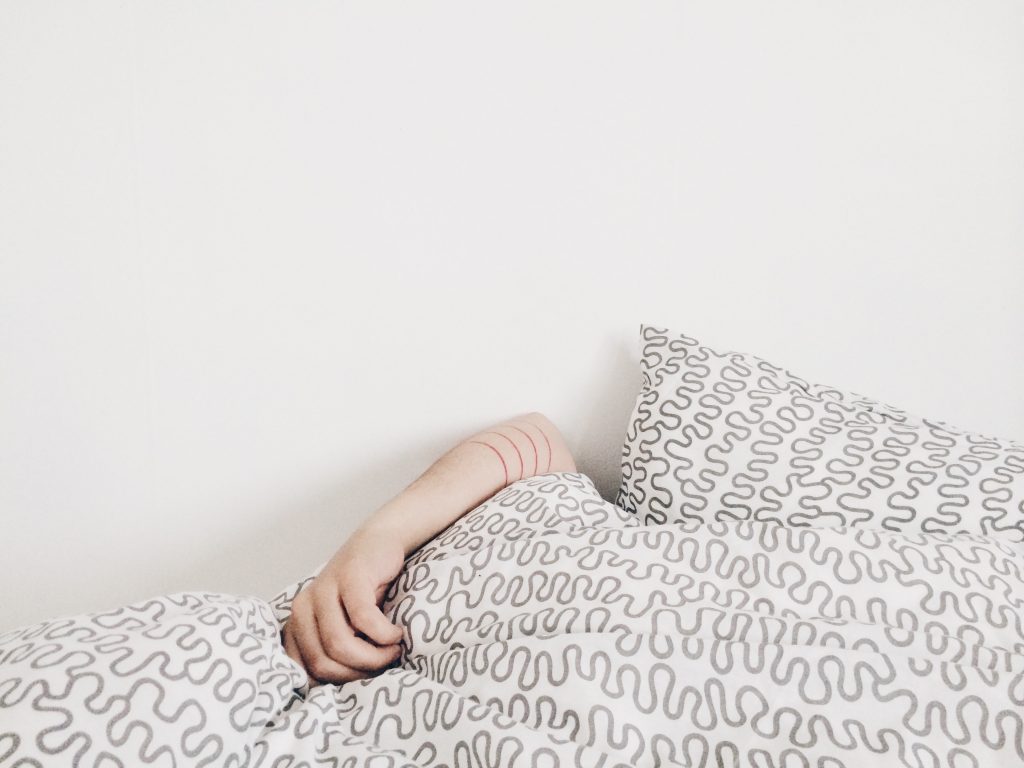In taking care of someone with Alzheimer’s or other forms of Dementia, one of the most important aspects is sleep. For many with the disease, sleep is a difficult to regulate and can cause various stresses to the brain and on families who are trying to care for them. In this blog, we’d like to talk about circadian rhythm, how dementia can affect it, what difficulties this can present, and talk about one piece of technology that we believe can help.

Circadian rhythm is a reference to the normal body processes that occur over the course of a regular day. The body and brain work together to go throughout the course of the day to maintain the regular processes required to get through the day. The hypothalamus is responsible for regulating these automatic processes. One of these processes includes regulating the creation and breakdown of proteins in the brain. This process gives you the energy you need throughout the day, but also tells your body when it is time to sleep. The brain uses visual cues, especially in terms of amount of light, in order to maintain these systems. Natural light is best and often works well in tandem with our circadian rhythm. This is why it is recommended to not watch TV directly before bed. The light from the screen can keep our brains active, thinking that it is still daylight, when in fact, it’s time for bed. When working properly, we wake up around the same time each day and start to feel tired at night in order to keep our bodies on schedule. This helps us be our most alert and productive during the day while giving us the time to rest and recuperate at night.
For many people suffering from Alzheimer’s and Dementia, keeping a regular sleep schedule can be extremely difficult. In fact, over 40% of people with Alzheimer’s are reported to have regular sleep difficulty. This is due to the buildup of beta-amyloid, which is one of the known symptoms of Alzheimer’s. This build up blocks the hypothalamus’ ability to regulate sleep as brain cells in that region are attacked and die over the course of the disease. As a result, a regular sleep schedule becomes even harder to maintain.
The outcome of less regulated sleep can be damaging. Deep sleep is important for the brain, especially when it comes to cataloguing and storing memories. Without regular sleep, the brain is unable to get the downtime needed for these functions and can lead to even further decline. For many sufferers, the brain can go from alert-to-tired during the day due to the lack of rest and regulation. Other dangers include waking in the middle of the night and wandering when no one is around to check on them. This can also be very disruptive to the lives of caregivers as their sleep schedule will become interrupted as well.
Sleep is monumentally important to our everyday functioning and can be even more important for those suffering from Alzheimer’s and Dementia.
One effective way to help with circadian rhythms is to allow more natural light into the room. For many of our residents, this can provide a cue for time of day. This cuts down on the confusion of what is coming (i.e. lunch or dinner) and also helps regulate the body’s circadian rhythm by giving the brain the light it needs.
One piece of technology that can help with this lack of regulation is called HumanCharger. HumanCharger is an innovative piece of technology that is as incredible as it is simple. The premise is this: the brain helps regulate circadian rhythms by analyzing the amount of light there is. Light, especially from the sun, helps to activate the brain and make us more alert. When we aren’t getting enough light or our receptors aren’t receiving enough input, it can hurt our mood, cause us to feel lethargic, and decrease our mental alertness. HumanCharger takes care of this by activating light receptors in our brains through our ears. The light from each earbud hits the receptors in the brain and helps to, essentially, charge its functions. For those with sleep difficulties, especially those with Alzheimer’s and Dementia, this can help regulate the circadian rhythms by cueing the brain to make the proteins that give us our energy throughout the day.
This is one of the many pieces of technology that we use and believe in at Cotter House Central Ohio. Sleep is monumentally important to our everyday functioning and can be even more important for those suffering from Alzheimer’s and Dementia. Giving our residents their best chance at good days and better health means taking care of their circadian rhythms with everything we can. That’s why we recommend and use HumanCharger.
